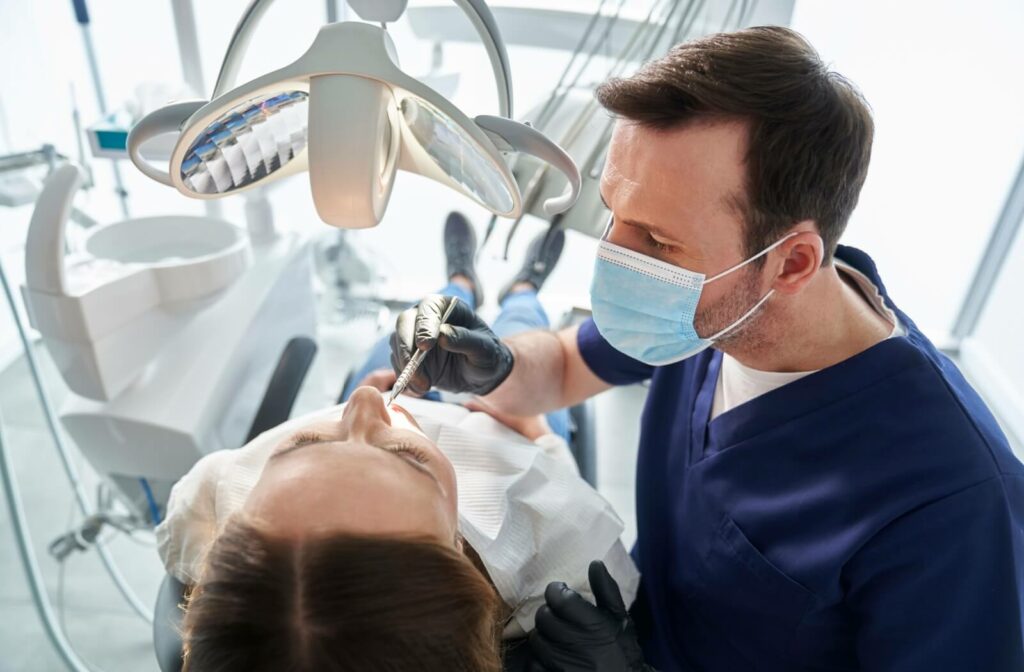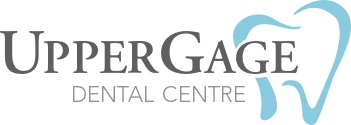If you find yourself experiencing pain when chewing, this can be a sign that something isn’t quite right with your teeth or mouth. While some causes of tooth pain are more serious than others, it’s important to address the issue as soon as possible to prevent further damage and discomfort.
Some common reasons why your tooth might hurt when you chew include tooth decay, gum disease, a cracked tooth, or an infection. These issues can be caused by poor oral hygiene, unhealthy eating habits, grinding your teeth, or even just genetics.
Tooth Decay
Tooth decay is the most common cause of tooth pain. When bacteria in your mouth feed on sugars and starches from food, they produce acid that can erode the enamel of your teeth. This can lead to cavities, which expose the sensitive inner layers of a tooth and may result in pain when chewing.
To prevent such discomfort, it’s important to brush your teeth twice a day and floss regularly. It’s also important to limit sugary and acidic foods in your diet and visit the dentist for regular check-ups.
Gum Disease
Gum disease, also known as periodontitis, is an infection of the gum tissue that supports your teeth. When plaque builds up on your gums, it can cause inflammation and eventually lead to gum disease. This can make chewing painful, and may also cause other symptoms such as bad breath and receding gums.
To prevent gum disease, it’s crucial to maintain good oral hygiene habits such as brushing and flossing regularly. If left untreated, gum disease can lead to more serious issues such as tooth loss.
Cracked Tooth
A cracked tooth can also cause pain when chewing. This can happen from biting down on something hard or from an injury to the mouth. A cracked tooth can expose the nerves and tissues inside, leading to sensitivity and pain when pressure is applied while chewing.
If you suspect that you have a cracked tooth, it’s important to seek treatment from your dentist right away. They may recommend a dental crown or other treatments, depending on the severity of the crack.
Infection
An infection in the tooth or gums can also cause pain when chewing. This can occur due to untreated cavities or gum disease, as well as from injuries to the mouth that allow bacteria to enter. Infections can cause severe pain and should be addressed by a dentist as soon as possible.
To prevent infections, it’s important to practice good oral hygiene and visit your dentist regularly for cleanings and check-ups. If you do experience an infection, your dentist may prescribe antibiotics or recommend other treatments, like a root canal.
The Culprit Behind Common Chewing Pain
In many cases, the cause of pain when chewing can be linked back to the following:
- Poor Oral Hygiene: Not taking care of your teeth and gums through regular brushing, flossing, and dental visits can lead to various issues that cause pain while chewing.
- Unhealthy Eating Habits: Consuming a lot of sugary and acidic foods can damage the teeth and lead to cavities, gum disease, and other problems that can cause pain.
- Bruxism (Teeth Grinding): Grinding or clenching your teeth can put excess pressure on them, causing pain while chewing.
- Dental Restorations: Old or damaged dental restorations such as fillings or crowns can become loose or broken, leading to discomfort when chewing.
- Genetics: In some cases, the structure of your teeth and jaw may be inherited, and may lead to issues such as misaligned teeth or temporomandibular joint disorder (TMJ), which can cause pain while chewing.
- Stress: High levels of stress can contribute to teeth grinding and clenching, as well as to other oral health issues that can lead to pain when eating.
How to Prevent Pain while Chewing

To avoid experiencing pain when chewing, here are some tips to keep in mind:
- Maintain Good Oral Hygiene: Brush your teeth twice a day, floss daily, and visit the dentist regularly for cleanings and check-ups.
- Limit Sugary and Acidic Foods: These types of foods can damage your teeth and lead to pain while chewing. Limiting their consumption can help prevent oral health issues.
- Wear a Mouthguard: If you grind or clench your teeth at night, wearing a mouthguard can help protect them from excess pressure and prevent pain while eating.
- Replace Old or Damaged Restorations: If you notice any issues with your fillings, crowns, or other dental restorations, make sure to visit your dentist to have them replaced or repaired.
- Practice Stress Management Techniques: To help prevent teeth grinding and other oral health issues related to stress, try incorporating relaxation techniques such as meditation or deep breathing into your daily routine.
Reclaim Your Oral Health with Upper Gage Dental Centre
Pain while chewing is not something that should be ignored. It’s important to address the underlying cause to find relief and prevent further damage to your oral health. If you are experiencing frequent or severe pain when chewing, make an appointment with your dentist for a thorough examination and a proper treatment plan.
At Upper Gage Dental Centre, we can help identify the cause of your pain and provide effective solutions to restore your oral health and improve your quality of life. Contact us today to schedule a consultation.


